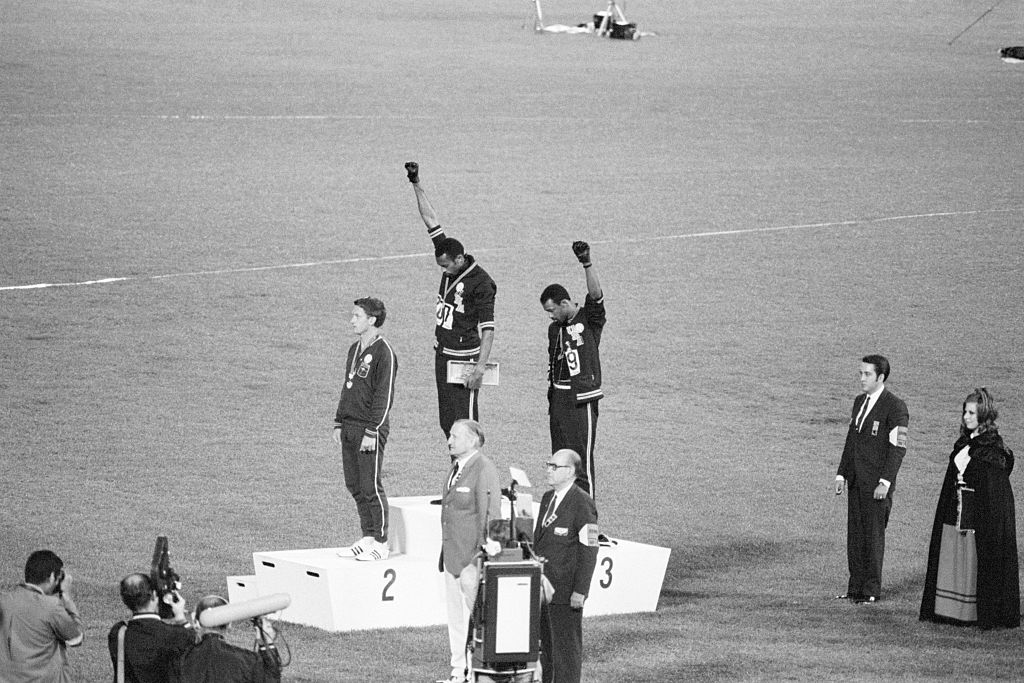While images of athletes engaged in protests at sporting events have a long history, they’ve been increasingly in the spotlight in the last few years. And while different leagues and governing bodies have handled protests differently, the IOC’s historical response to protests has come under intense scrutiny in the lead-up to the Tokyo Games. Specifically, that has to do with Rule 50 of the IOC Charter, which stated, “No kind of demonstration or political, religious or racial propaganda is permitted in any Olympic sites, venues or other areas.”
The IOC recently announced that it would relax Rule 50, but for some high-profile athletes, those measures don’t go far enough. The Guardian reported that dozens of “athletes, professors, members of sports organizations and human rights and social justice experts from around the world” recently signed an open letter asking the IOC to go further. Among them are John Carlos and Tommie Smith, whose protest at the 1968 Olympics is a landmark moment in sports history.
“We believe the global sport community is at a turning point in matters of racial and social justice, and we call on you as leaders in the Olympic and Paralympic Movements to make a stronger commitment to human rights, racial/social justice, and social inclusion,” the letter states.
As Joan Niesen writes at The Guardian, the letter calls for governing bodies to not sanction athletes who protest during the Tokyo or Beijing Olympics, and for the IOC to revisit Rule 50 once the latter event is complete. The open letter makes a convincing argument, noting that the rule as it currently exists “violates key principles of Olympism, Olympic values, and Paralympic values.” Will it be enough to convince the IOC? It certainly seems like history is on the side of the letter and its signatories.
Whether you’re looking to get into shape, or just get out of a funk, The Charge has got you covered. Sign up for our new wellness newsletter today.
